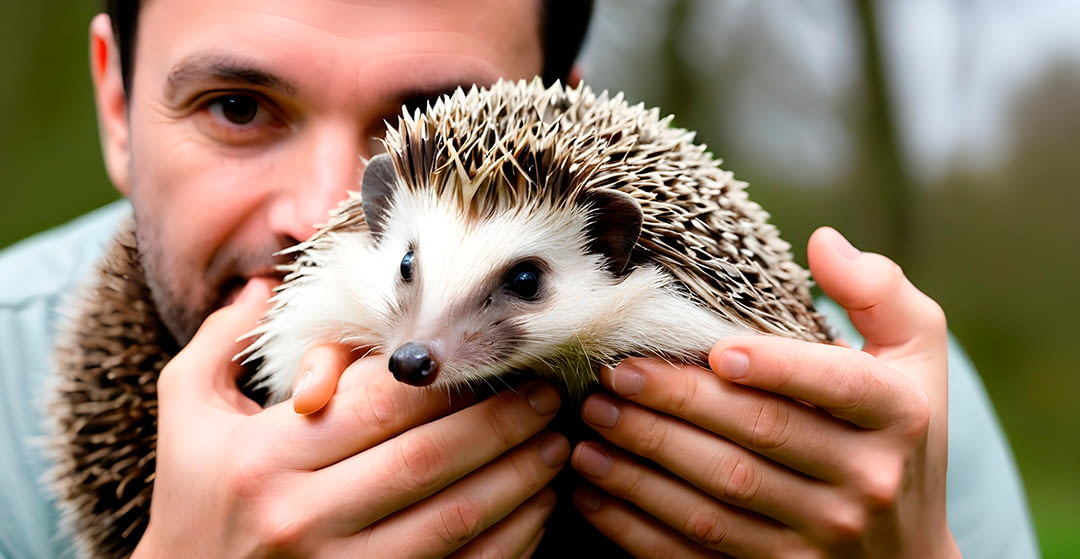
Surely some of your customers have been curious about having an exotic animal as a pet. Having a parrot can be an attractive option if you are looking for a pet that can interact with you or if you have always had a fantasy of being a pirate. However, a parrot's life expectancy can range from 10 to 80 years and this involves a long-term commitment, especially considering the ongoing cost of feeding it.
Pet ownership carries considerable responsibility, which underscores the importance of guidance from an Exotic Animal Technician when considering exotic animal adoption, as it is crucial to know the steps to follow before taking that step.
BEFORE ADOPTION
When someone decides to incorporate an animal into their life, the most important thing would be to gather all the pertinent information by consulting a specialized center.
Adoption is the only way to ensure the well-being of all species and to mitigate the risk of promoting abusive breeding or animal trafficking.
There are a large number of abandoned animals looking for a home; Those who invest money in a pet probably do so out of breed or species preference, but companionship and affection can be provided by any animal looking for a family.
Once this point has been assimilated, it is crucial to find out what type of pet best suits our circumstances and what implications such adoption entails (conditioning needs, costs, permits, etc.).
BEFORE ADOPTING AN EXOTIC ANIMAL
Adopting an exotic animal comes with different considerations than adopting a dog or cat. Before bringing one of these pets into our home, it is essential:
· Investigate prohibited species in our country.
· Select a pet that fits our circumstances.
· Familiarize ourselves with the permits necessary to keep an exotic animal at home.
· Consult with an Exotic Animal specialist to understand the animal's specific needs, such as veterinary care, diet and habitat.
· Visit an exotic animal adoption center.
· Verify that the chosen animal has been examined by a veterinarian to prevent zoonotic diseases.

VETERINARY CARE
We have already mentioned that specialist veterinary advice for these types of animals is essential for advice on the necessary care and its costs in addition to the frequent health problems that can affect them, allowing owners to be alert to any worrying symptoms.
For example, having a pet lizard may seem exciting and exotic, but the associated costs, such as the electricity bill for maintaining a constant heat source, may not be as fun.
A veterinarian specialized in these animals will provide all the necessary information on:
· Choosing suitable pets: A specialized veterinarian can help future owners choose the species of exotic animal that best suits their lifestyle, grooming skills, and home environment.
· Habitat requirements: Detailed information on how to set up the appropriate habitat for the animal, including enclosure size, substrate type, lighting, temperature and humidity required.
· Nutrition and diet: Specific dietary needs of each species, as well as the vitamin supplements necessary to maintain the optimal health of the animal.
· Preventive Health Care: They offer guidance on vaccinations, deworming, and other aspects of preventative care to help prevent common diseases in exotic animals.
· Disease Identification and Management: Help owners identify signs of illness in their exotic pets and provide guidance on proper management of illnesses and injuries that may arise.
· Behavior and environmental enrichment: Provide advice on how to enrich the animal's environment to promote natural behavior and prevent boredom and stress.
KNOWLEDGE OF ILLEGAL EXOTIC ANIMALS
Currently, in Spain there is no official list of exotic animals allowed in our homes. However, a registry of illegal invasive species is maintained and updated regularly.
Numerous animal rights organizations advocate for the implementation of a "positive list," which consists of a catalog of animals that can be legally adopted. Many species are not suitable for life in captivity, and legislation should be adapted to ensure the welfare of all animals.
WHERE TO ADOPT AN EXOTIC ANIMAL
Once all the necessary information has been collected and the decision to adopt an exotic animal has been made, it is advisable to go to a center specialized in adopting this type of animal. In the digital age, we can easily find contacts for nearby shelters and shelters that are dedicated to facilitating the search for a suitable home for exotic animals and offer guidance to owners on how to properly care for them.
Exotic animals available for adoption are usually those that have been abandoned by their previous owners. These creatures need a home that is committed to their well-being.
To ensure this, protective organizations establish certain rules for responsible adoption, such as the obligation to identify animals with a microchip or subject them to sterilization.
Likewise, it is essential to verify that these animals have been thoroughly examined by a veterinarian to avoid the spread of diseases that could affect both other animals and humans.
On top of all this, many exotic animals in the adoption process will require their future owners to obtain special permits. The regulation of these permits varies according to local authorities.



